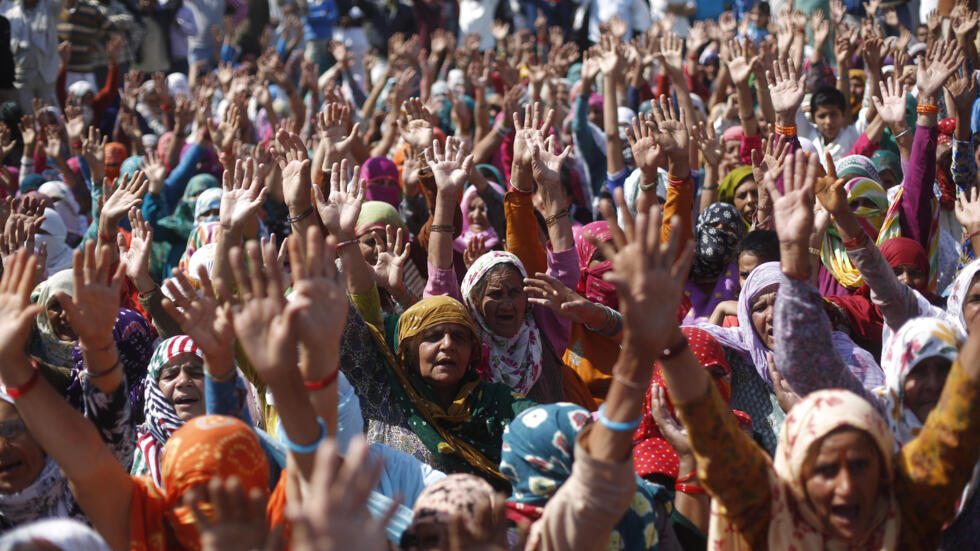Indian Jat caste protests continue but Delhi water supply expected to return
More than 10 million people were without water in New Delhi on Monday, after Jat community protesters seized the Munak canal, the capital’s main water source.The upper-caste Jats are demanding to be included in quotas for jobs and education opportunities that are available to lower castes.
Issued on: Modified:
Play - 03:31

New Delhi schools were closed due to the water shortage on Monday, after three days of protests which claimed the lives of 19 people.
On Friday Jat protesters seized the Munak canal, which supplies around three-fifths of water to Delhi's 16 million residents.
They have also been blocking national highways and railway lines linking Delhi to the cities of Jaipur and Chandigarh.
Authorities said the situation was slowly returning to normal on Monday,
The Jats, who are currently listed as an upper caste, want to be included in quotas for jobs and education opportunities that are available to lower castes.
The community is traditionally made up of wealthy land-owners and farmers, who live in the province of Haryana as well as other parts of northern India.
But over the last few years they have been asking to be downgraded to the category of Other Backward Castes (OBC), as their current status excludes them from a system of quotas that reserves government jobs and university positions for people with lower status in the Hindu caste system.
Chandra Prasad, an Indian writer and an expert on the caste system, says the Jats are now facing a generational shift, as the community's youth is turning away from the countryside, in search of career opportunities now found in the country's biggest cities.
"The Indian countryside doesn't have good schools," he explains. "So the children can't compete with those who are settled in urban centres."
"They [the Jats] are in a conflict with themselves. They don't want to leave the countryside but their children have urban aspirations."
To be recategorised as an OBC, Jats have to show they are vulnerable. But, according to Prasad, their traditional economic status prevents them from changing the government's perception.
"The problem is that they are economically superior and they are not discriminated against," he says. "So they have no moral standing whereby they can be socially downgraded and be put in the backward quota."
On Sunday the local government in Haryana announced that it will be passing a bill in the State Assembly to grant the Jats' demands.
India's federal government has also announced the creation of a top-level committee, to look into the community's grievances.
The caste is politically influential: they make up 27 per cnt of the voters in Haryana, and dominate a third of the 90 state assembly seats in Haryana.
They also represent millions of voters in northern India and successive governments have been keen to satisfy their demands.
In March 2014 the Congress-led national government said it would recategorise Jats as OBCs, opening the way to government job quotas.
But last year India's Supreme Court ruled that they were not a backward community.
"Because the Jats are an important vote bank, Bhartiya Janata Party (BJP) now in power has now promised something the Supreme Court has already said no to", says Jean-Luc Racine, from the Asia Centre.
"The government is afraid that the Jat agitation will spread to Uttar Pradesh, India's largest state, with 200 million people, which will have an election in 2017," he explains.
This week's rebellion shows the limitations of India's quota system in an increasingly urban and competitive society, where members of some upper castes are now struggling to access the best jobs.
On Monday some of Jat protesters accepted the local government's offers and the army has retaken control of the Munak canal.
Water is expected to reach the capital by early Tuesday.
But many Jats were still out in force on Monday evening to demand written assurances of more jobs for their community.
Daily newsletterReceive essential international news every morning
Subscribe